Want a healthy Catahoula? Learn about common Catahoula health problems and how to prevent them!
Catahoula Leopard Dogs are known for their resilience. But like all breeds, they can be prone to certain health issues. Let’s explore some common Catahoula health problems and discover how to keep our spotted friends in tip-top shape.
The Most Common Health Issues in Catahoulas and How to Handle Them
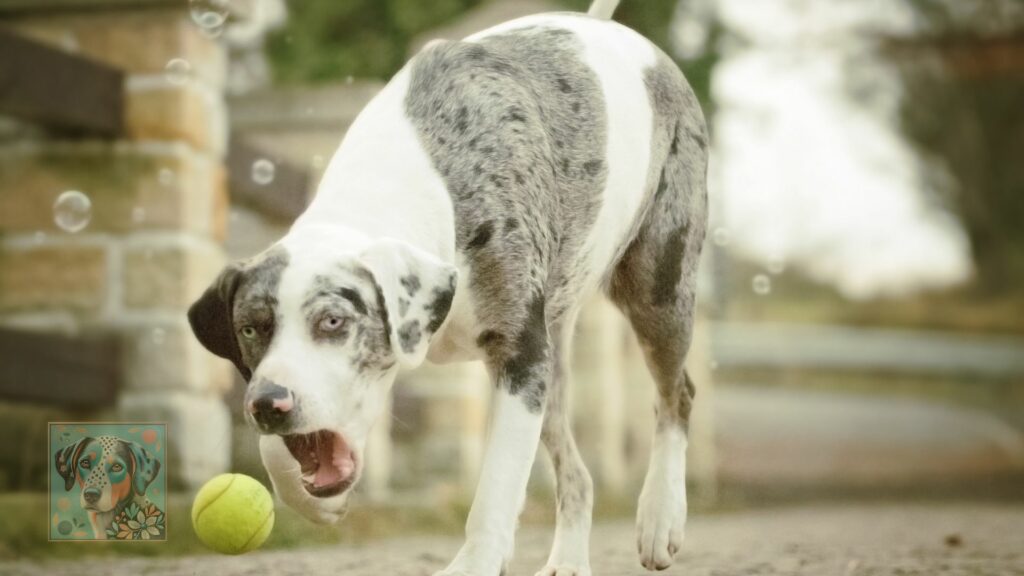
Catahoula Leopard Dogs are known for their striking coats and strong builds. However, like any breed, they face specific health problems. Early detection and proper care can make all the difference in your dog’s quality of life.
In this post, we’ll explore common Catahoula health issues and how to prevent them, ensuring your loyal companion stays happy and healthy for years.
Common Catahoula Health Problems: What to Watch Out For
While Catahoulas are generally healthy dogs, they can be prone to certain health issues, just like any other breed. Knowing what to look for can help you catch problems early and ensure your Catahoula lives a long and happy life.
Hip Dysplasia
Hip dysplasia is a common condition in many dog breeds, including Catahoulas. It occurs when the hip joint doesn’t develop properly, causing the ball and socket to rub and grind instead of moving smoothly. This can lead to pain, lameness, and arthritis.
Symptoms of hip dysplasia in Catahoulas can include:

- Difficulty getting up or climbing stairs
- Limping or a “bunny hopping” gait
- Stiffness or pain in the hips
- Decreased activity levels
If you notice any of these symptoms, it’s important to take your Catahoula to the vet for an evaluation. Hip dysplasia can be diagnosed through a physical exam and X-rays. Treatment options vary depending on the severity of the condition and may include:
- Weight management: Maintaining a healthy weight can reduce stress on the joints.
- Exercise modification: Low-impact activities like swimming can help keep joints mobile without excessive strain.
- Medications: Pain relievers and anti-inflammatory drugs can help manage discomfort.
- Joint supplements: Glucosamine and chondroitin supplements can support joint health.
- Surgery: In severe cases, surgery may be necessary to correct the hip joint.
Hip dysplasia is a common Catahoula health problem, but with early detection and appropriate management, affected dogs can still live happy and active lives. Be sure to discuss any concerns with your veterinarian, and they can help you create a plan to keep your Catahoula comfortable and mobile.
Deafness
Deafness is another health concern to be aware of in Catahoulas. It can be present at birth (congenital) or develop later in life (acquired).
Congenital deafness is often linked to the merle gene, which is responsible for those beautiful marbled coat patterns. This means that Catahoulas with merle coats, especially those with a lot of white, have a higher risk of being deaf.
How to Identify Deafness in Your Dog
If you suspect your Catahoula might be deaf, there are ways to test their hearing. Your veterinarian can perform a BAER (Brainstem Auditory Evoked Response) test, which measures the brain’s response to sound.
You can also try some simple at-home tests, like clapping your hands or making a sudden noise behind your dog to see if they react.
Living with a Deaf Catahoula
While deafness can be a challenge, it doesn’t mean your Catahoula can’t live a full and happy life.
You’ll just need to adjust your communication and training methods.
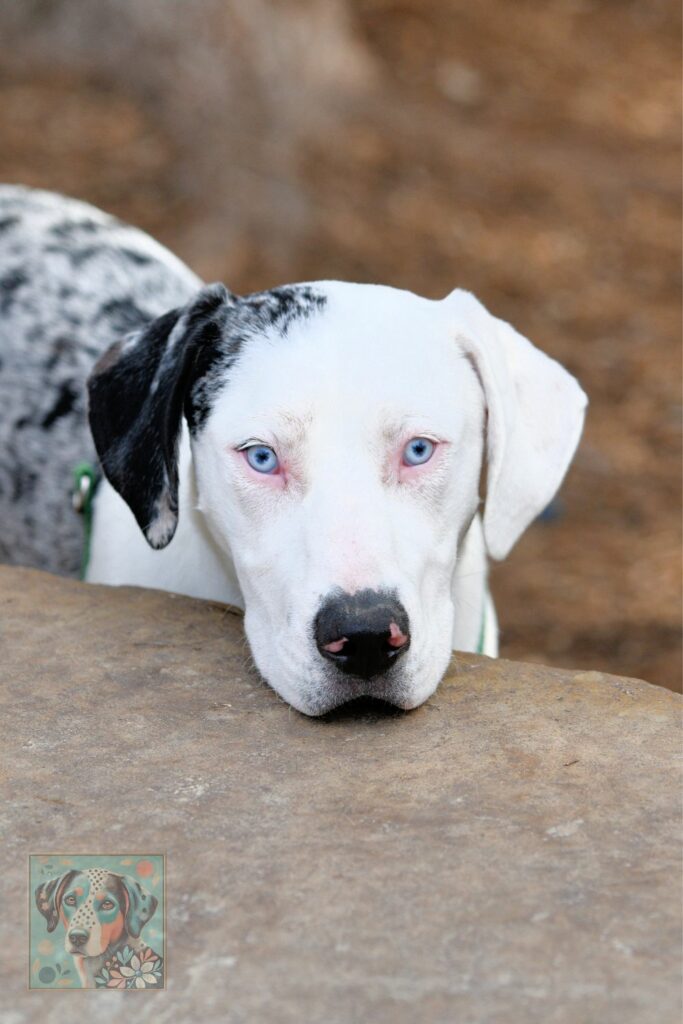
- Use visual cues: Hand signals, body language, and even vibrations can be used to communicate with your deaf dog.
- Keep them safe: A deaf dog might not hear approaching dangers, so be extra vigilant in keeping them secure and supervised.
- Positive reinforcement: Focus on positive reinforcement training methods, using treats and praise to reward desired behaviors.
- Build a strong bond: A deaf Catahoula might rely more on their other senses, so focus on building a strong bond through touch, scent, and visual cues.
Deafness is a potential Catahoula health problem, but it doesn’t have to define your dog’s life. With love, patience, and a few adjustments, you can help your deaf Catahoula thrive and enjoy a fulfilling life by your side.
Eye Problems
Just like with their hearing, Catahoulas can also experience specific eye problems.
These can range from common conditions like cataracts (a clouding of the lens) to more severe issues like Progressive Retinal Atrophy (PRA), which can lead to blindness.
Another eye condition sometimes seen in Catahoulas is corneal dystrophy, where the cornea becomes cloudy or opaque. This can cause vision impairment and discomfort.
Early Detection is Key
Regular eye exams are crucial for catching these problems early. Your veterinarian can perform a thorough eye exam during your Catahoula’s annual checkups. But it’s also important to be aware of any signs of eye trouble at home, such as:
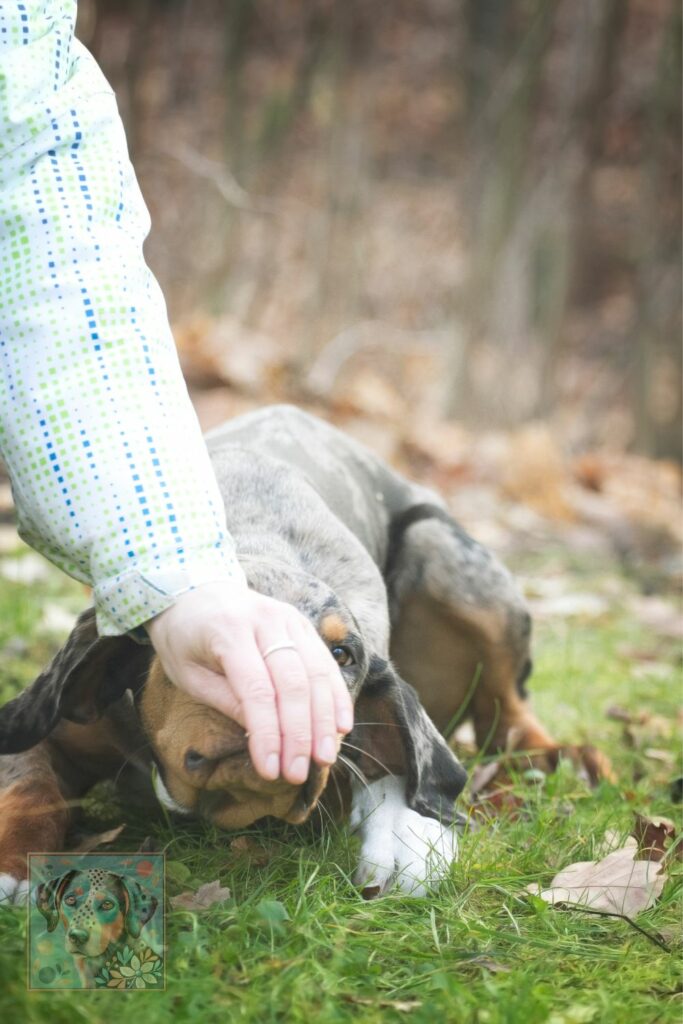
- Cloudiness or changes in eye color.
- Excessive tearing or discharge.
- Redness or swelling around the eyes.
- Squinting or pawing at the eyes.
- Changes in vision or behavior (bumping into things, hesitancy to navigate in low light).
If you notice any of these signs, don’t hesitate to contact your veterinarian. Early detection and treatment can often help preserve your Catahoula’s vision and quality of life.
While eye problems can be a concern for Catahoulas, regular checkups, and proactive care can help protect their vision. Be observant of any changes in your dog’s eyes and seek veterinary attention promptly if you notice anything unusual.
Other Health Concerns
While hip dysplasia, deafness, and eye problems are some of the more common Catahoula health problems, there are a few other conditions to be aware of.
- Hypothyroidism: This occurs when the thyroid gland doesn’t produce enough hormones, leading to symptoms like weight gain, lethargy, and skin problems. Thankfully, it’s easily managed with medication.
- Bloat: Also known as Gastric Dilatation-Volvulus (GDV), bloat is a life-threatening condition where the stomach twists, cutting off blood supply. It’s more common in deep-chested breeds like Catahoulas. Feeding smaller meals and avoiding strenuous exercise after eating can help reduce the risk.
- Skin Allergies: Catahoulas can be prone to allergies, which can cause itching, redness, and hair loss. Identifying and avoiding allergens, along with proper grooming and veterinary care, can help manage these issues.
- Eosinophilic Panosteitis (Growing Pains): This condition affects young, growing dogs and causes pain and inflammation in the bones. It usually resolves on its own with time and pain management
While this list might seem a bit daunting, remember that most Catahoulas are healthy and resilient dogs. By being aware of potential health problems and taking preventative measures, you can help your Catahoula live a long and happy life. Always consult with your veterinarian for personalized advice and care.
Preventing Catahoula Health Problems
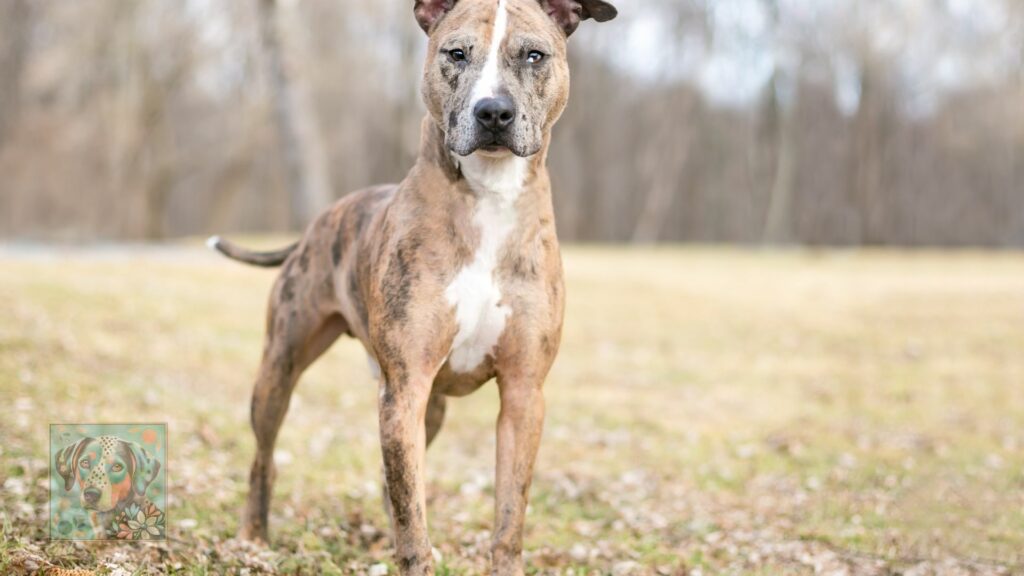
While we can’t completely eliminate the risk of health issues, there’s a lot we can do to keep our Catahoulas happy and healthy. Here are some key strategies for preventing Catahoula health problems:
Responsible Breeding
One of the best ways to reduce the risk of inherited health problems is to start with healthy parents. When choosing a Catahoula breeder, look for someone who prioritizes the health and well-being of their dogs.
Reputable breeders perform health screenings on their breeding dogs to check for conditions like hip dysplasia, eye problems, and deafness. They also carefully select breeding pairs to minimize the risk of passing on genetic disorders. By choosing a responsible breeder, you’re increasing the chances of bringing home a healthy Catahoula puppy.
Proper Nutrition
Just like us, Catahoulas need a balanced diet to thrive. Feeding your Catahoula a high-quality dog food that meets their nutritional needs can help prevent obesity, which can exacerbate other health problems like hip dysplasia and heart disease.
Avoid overfeeding your Catahoula and ensure they get plenty of exercise. Talk to your veterinarian about the best diet and feeding schedule for your dog.
Regular Exercise
Catahoulas are energetic dogs who need plenty of exercise to stay healthy and happy. Regular physical activity helps maintain a healthy weight, strengthens muscles and joints, and promotes mental well-being.
Aim for at least an hour of exercise per day, which can include activities like:
- Brisk walks or jogs
- Hiking
- Swimming
- Playing fetch
- Agility training
- Dock Diving
- Barn Hunt/Scent Work

Routine Veterinary Care
Regular checkups with your veterinarian are essential for preventing and managing Catahoula health problems. Your vet can perform routine exams, vaccinations, and preventative screenings to catch potential issues early on.
Early detection is often key to successful treatment and can help your Catahoula live a longer, healthier life. Don’t hesitate to contact your veterinarian if you notice any changes in your dog’s behavior, appetite, or physical condition.
By taking a proactive approach to your Catahoula’s health, you can significantly reduce their risk of developing certain conditions. Focus on responsible breeding, proper nutrition, regular exercise, and routine veterinary care to help your Catahoula thrive.
A Lifetime of Love: Keeping Your Catahoula Healthy and Happy
We’ve covered a lot of ground today, haven’t we? From hip dysplasia and deafness to eye problems and other health concerns, Catahoulas can face their fair share of challenges. But the good news is that many of these issues can be prevented or managed with proactive care.
Remember, knowledge is power! By being aware of common Catahoula health problems and taking preventative measures, you can help your furry friend live a long, healthy, and fulfilling life.
The Joy of a Healthy Catahoula
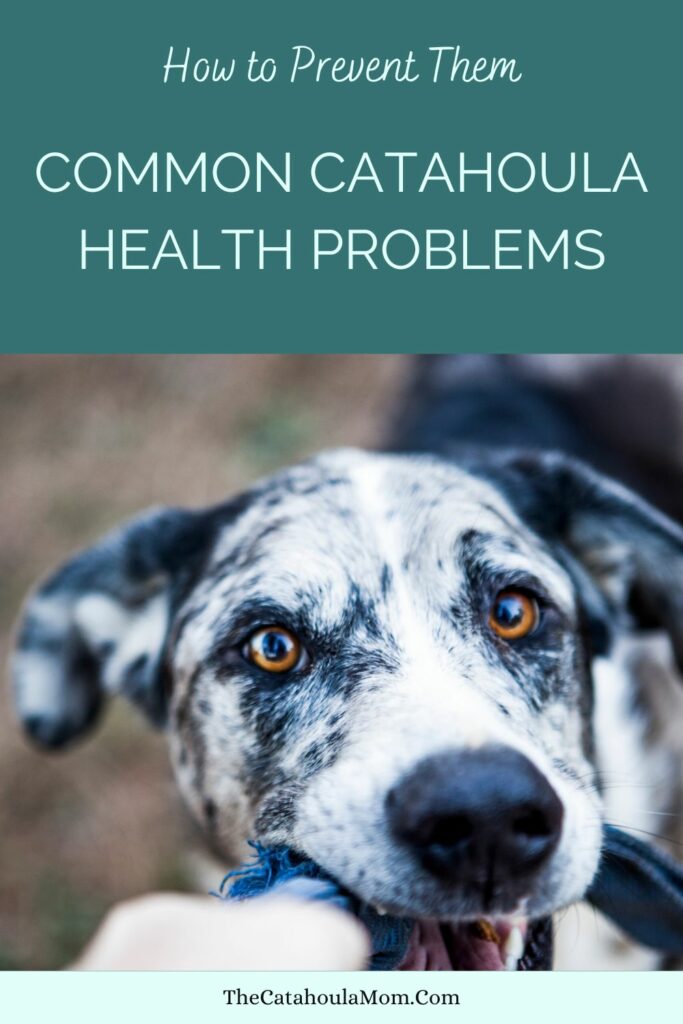
There’s nothing quite like the joy of sharing your life with a healthy and happy Catahoula.
Their playful spirit, unwavering loyalty, and unique personality make them truly special companions.
By prioritizing their well-being, you’re not only giving them the best chance at a long life but also strengthening the bond you share.
So, let’s raise a paw to happy, healthy Catahoulas everywhere!
May their days be filled with zoomies, snuggles, and endless adventures.


